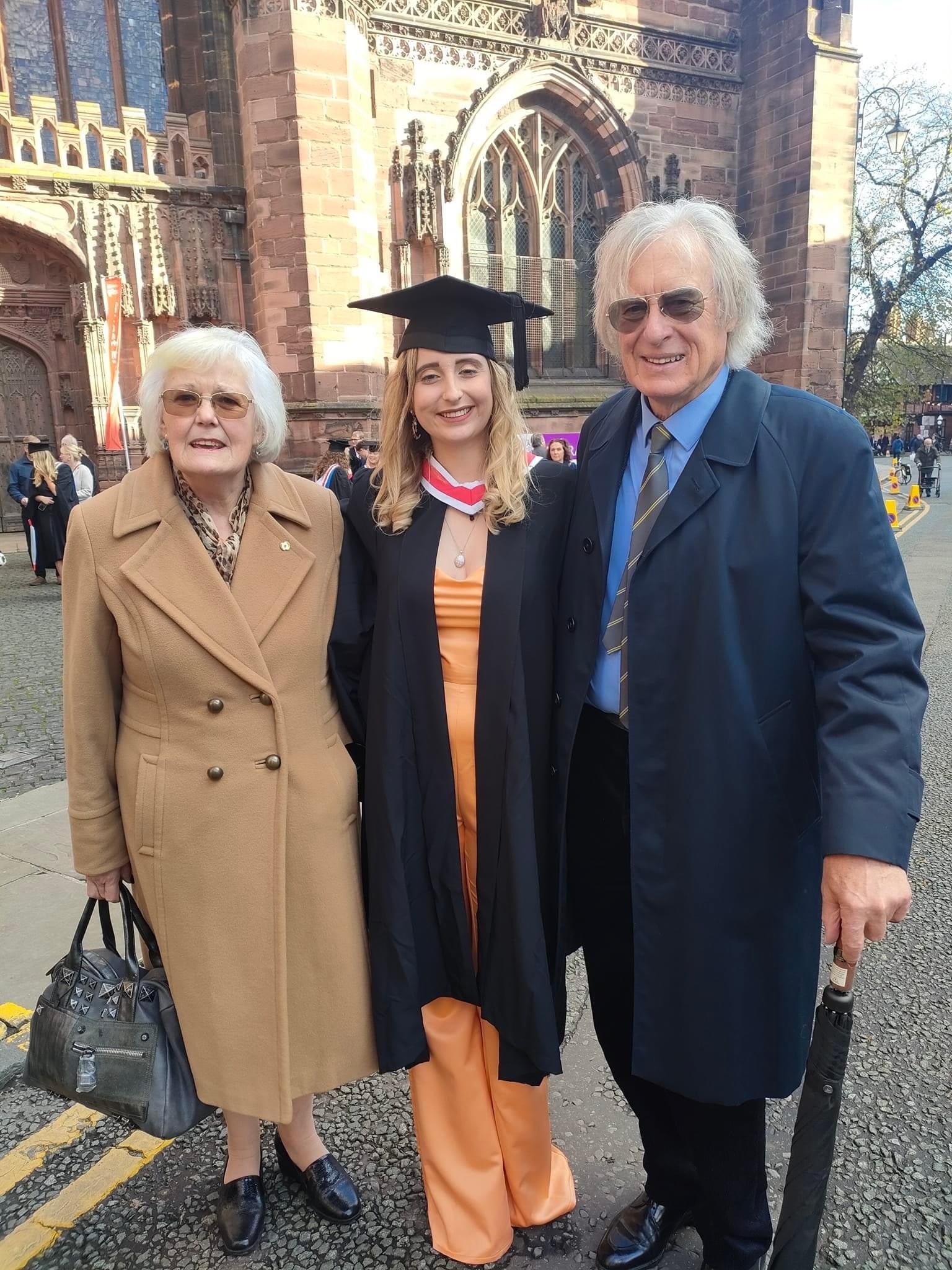Hundreds of patients go blind waiting for eye appointments as NHS backlog grows
More than 600,000 people are waiting for ophthalmology appointments in England alone

Hundreds have lost their sight while waiting for an eye appointment, leading to stress, anxiety and fear among patients, as the NHS backlog continues to grow.
Clinicians have reported more than 200 cases of people going blind due to treatment delays since 2019, a Freedom of Information request to NHS England has revealed, with hundreds more unreported cases suspected.
Currently, 628,502 people are awaiting ophthalmology appointments in England alone, according to the latest figures from NHS England, with 27,260 of those having been waiting a year or more. This is the second largest NHS backlog, equating to one in every 11 patients on an NHS waiting list.

Pam Perceval-Maxwell, from Neyland, Pembrokeshire, is one of the patients whose vision deteriorated after an appointment was delayed, and who is currently waiting for another delayed appointment. She said she has been left in the position where “you go to bed at night thinking, ‘Well, am I still going to be able to see in the morning?’”
Have you been affected by this? If so email tara.cobham@independent.co.uk
The 74-year-old was diagnosed with wet Age Related Macular Degeneration (AMD) in October 2021. She had already had dry AMD in her right eye for years, which had caused a loss of central vision.
In the first few months after diagnosis, she was getting her six-week appointments and injections on time. Then they were delayed by a week twice.
Last summer, she was forced to wait 12 weeks from June to September. “As a result, my sight had deteriorated,” she said.
“These delays cause a significant impact on a daily basis. The stress and anxiety take their toll on my physical and mental well being. I am frightened that I will lose the sight in my one good eye, which will have a massive impact on my desire to maintain as much independence as possible.”
She added the delays put her life on hold, leaving her “in limbo not daring to plan anything”.

In response to a Freedom of Information request by Optometry Today, NHS England has revealed that there have been 551 reports to the National Reporting and Incident system in relation to sight loss due to delayed appointments since 2019. Of those reports, 99 incidents involved “severe harm”, and 120 incidents caused “moderate harm”.
The findings reinforce fears expressed by UK optometrists in a newly released survey of 876 conducted by the Association of Optometrists (AOP), a UK membership organisation for optometrists. Nearly half (43 per cent) raised serious concerns over the number of patients they are seeing who could lose sight unnecessarily as a result of long NHS waiting lists and cancelled appointments.
Ms Perceval-Maxwell said she was due for an injection on 9 March but has been told there is a five-week delay to appointments. Based on her past experiences, she said she could imagine her appointment getting pushed back even further.
Meanwhile, she said she has no idea what is happening to her eyesight, while she struggles with some everyday tasks. “I’m not sure whether my sight is deteriorating or whether it’s anxiety playing tricks on my mind,” she said. “I certainly feel there could be deterioration.”
She added, “I’m terrified I will lose my sight entirely. When your consultant stresses how important it is to have the injections on time but you can’t get an appointment it’s such a worry. I regularly call to see if there is a cancellation but I ask myself how much longer can I cope with it.”
The 74-year-old said she is simply calling for appointments and injections delivered in a timely manner for her and other AMD sufferers.
“I know that I’m one of many,” she said, citing at least eight people she knew of in a similar position, with one having had to wait 17 weeks for an appointment. “I don’t only want to put it right for me. I want it for other people who don’t want to keep doing this battle all the time and need someone to speak for them. We shouldn’t have to put up with it.”
Close to 500 members of the public with macular eye conditions who have required medical treatment in the past two years shared their experiences in a newly released survey by the Macular Society, with nearly six in 10 (57 per cent) reporting having experienced a delay while waiting for an NHS appointment and/or treatment. Almost half (47 per cent) experienced a loss or decline in vision during this time, with 41 per cent saying they are frightened of losing their vision entirely.
Describing the situation as a health emergency, the AOP is calling on the Government to commit to a national eye health strategy that enables more patients to access the care they need quickly and locally.
Under the current system, many appointments take place in hospital, but the organisation said waiting times for treatment could be significantly reduced if more care was provided by community optometrists who are qualified and already provide follow-up services in some parts of the country.
Cathy Yelf, Chief Executive of Macular Society, said the eye charity is receiving dozens of phone calls each month from people who are worried they are going to lose vision because of delays.
“People are terrified at the prospect of losing vision. The ones who contact us are the ones who are actively trying to solve the problem,” she said. “We have no idea how many people sit at home, quietly losing their vision and not making a fuss about it.
“It is a tragedy that people lose sight when there is a treatment that will help keep their vision for longer, but it is not given in time.”






Join our commenting forum
Join thought-provoking conversations, follow other Independent readers and see their replies
Comments